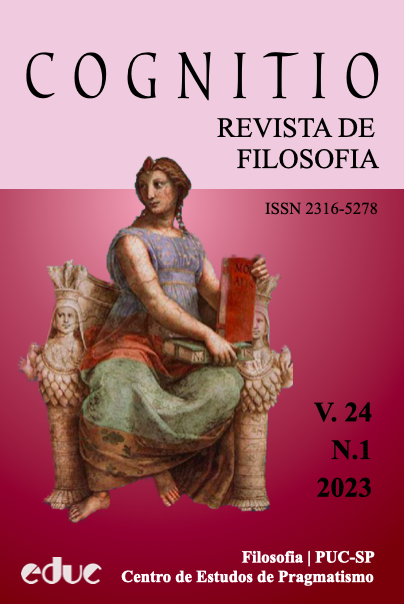Utopia and Dystopia
a tour of Huxley, Rorty and Scruton
DOI:
https://doi.org/10.23925/2316-5278.2023v24i1:e57171Keywords:
Dystopia, Huxley, Rorty, Scruton, UtopiaAbstract
Utopias are born from the deep human desire for the world to be different, to be better. Dystopias, in turn, are born from the fear-recognition that this world could be worse. In any case, utopia and dystopia start from what we have, from the world as it is, from “things as they are”, towards a possibility. Literature and Philosophy – especially Political Philosophy – always walk together on the path that runs through utopias and dystopias, describing and redescribing the human condition, constructing and deconstructing the idea of man and the good life. Great names in the history of thought, from Plato to Thomas More, Campanella, Francis Bacon, Aldous Huxley and George Orwell dedicated themselves to the imaginative task of thinking about the world we have in the face of the one we could have – for better or worse. But would there still be room for utopias and dystopias in contemporary political thought? Does it still make sense to use such vocabularies in the context of political reflection? The American philosopher Richard Rorty (1931-2007) developed, in the 20th and early 21st centuries, a conception of social democratic and liberal cosmopolitan utopia. Recognized ethnocentric, Rorty envisioned the construction of a broad democratic society based on the reform of the institutions consolidated in real democratic societies, towards the objective of extinguishing the cruelty and humiliation of men by other men and the continuous replacement of force by dialogue. On the other hand, in defense of pessimism, and denouncing the dangers of false hope, the English philosopher and writer Roger Scruton (1944-2020) presents himself as a critical voice in the face of utopias, including what he calls “utopian fallacy” in his list of current sophisms in contemporary times that contribute to an inappropriate reading of our time. In this article, we present a tour of the feelings of utopia and dystopia, highlighting the fundamental writings of Huxley, Rorty and Scruton and drawing a parallel between their rhetoric, highlighting some controversies that can be seen between them.
References
GHIRALDELLI Jr., Paulo. Roger Scruton e a denúncia tardia da modernidade ou Scruton versus Rorty: crítica ao thegreatswindle. Redescrições, v. 14, n. 2, p. 8-18, 2013.
GHIRALDELLI Jr., Paulo. Richard Rorty: a filosofia do novo mundo em busca de mundos novos. Petrópo- lis: Vozes, 1999.
HUXLEY, Aldous. Admirável mundo novo. Trad. Lino Vallandro; Vidal Serrano. 22 ed. São Paulo: Globo, 2014.
MARX, Karl; ENGELS, Friedrich. A Ideologia Alemã. Trad. Rubens Enderle, Nélio Schneider e Luciano Cavini Martorano. São Paulo: Boitempo, 2007.
PLATÃO. A República. São Paulo: Cultura Brasileira, 1947.
RUSSELL, Bertrand. História da filosofia ocidental: a filosofia antiga. Vol. I. Trad. Hugo Langone. 1a ed. Rio
de Janeiro: Nova Fronteira, 2015.
RORTY, Richard. Ensaios sobre Heidegger e outros. Trad. Eugenia Antunes. Lisboa: Instituto Piaget, 1991.
RORTY, Richard. O futuro da utopia. Trad. Clara Allain. Folha de São Paulo. São Paulo, 1999.
RORTY, Richard. Pragmatismo e política. Trad. Paulo Ghiraldelli Jr. São Paulo: Martins Fontes, 2005.
RORTY, Richard. Solidariedade ou objetividade? Trad. Maria Amália Andery e Teresa Maria de Azevedo Pires Sério. Novos estudos, n. 36, p. 109-121, 1993.
SCRUTON, Roger. As vantagens do pessimismo e os perigos da falsa esperança. Trad. Fábio Faria. São Paulo: É Realizações, 2015.
SCRUTON, Roger. Richard Rorty’s legacy. 2007. Disponível em: https://www.opendemocracy.net/democra- cy_power/people/richard_rorty_legacy. Acesso em 11 de maio de 2016.
Downloads
Published
How to Cite
Issue
Section
License
Copyright (c) 2022 http://creativecommons.org/licenses/by/4.0/

This work is licensed under a Creative Commons Attribution 4.0 International License.









